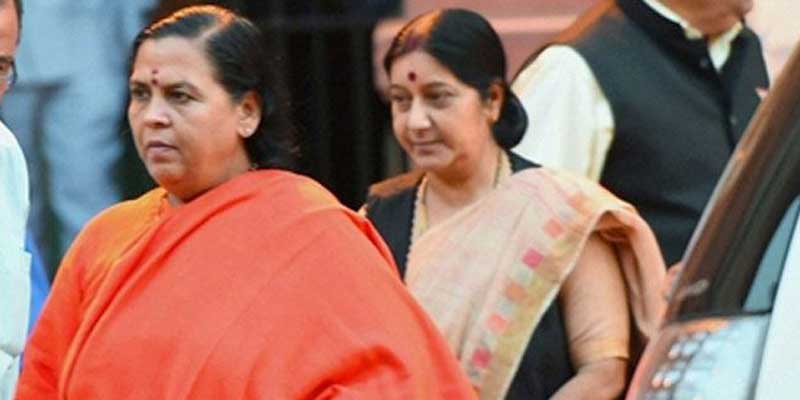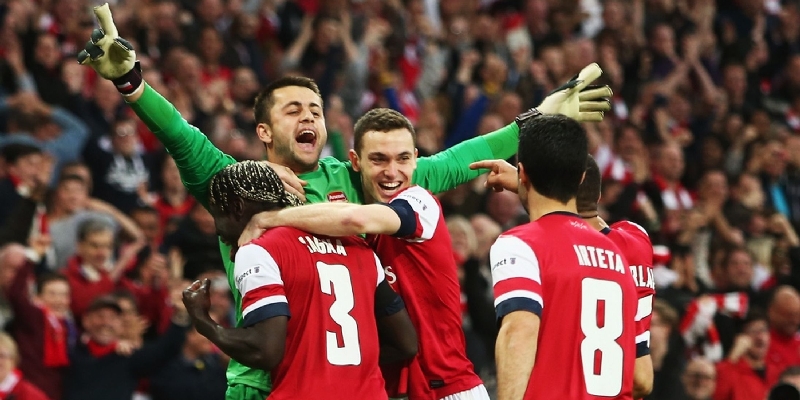Now is the time that we make Sanskrit mandatory at all levels of education, not only for the sake of its revival, but also for increasing the life of our own culture and spreading the knowledge of our history and heritage.
When Prime Minister Narendra Modi was to be sworn in, rumours suggested that he will do so in Sanskrit. But it did not happen. Maybe it was the failure of popular expectation that led to four of Lok Sabha MPs take oath in the ancient Indian language today.
Bhartiya Janata Party leader and external affairs minister Sushma Swaraj, along with water resource minister Uma Bharti, health minister Dr Harsh Vardhan and BJP MP from East Delhi Maheish Girri took oath in the 16th Lok Sabha in Sanskrit.
With this, the language of the Gods became the new cool on social media and electronic media. People were tweeting about it and liking the news on facebook. But does this complete our homage towards Sanskrit?
The foundation of India culture is based on the Sanskrit language. In ancient India, it served as the means of communication and vehicle for passage of knowledge from one generation to the other. But the ‘pure’ language is now confined to the auspices of temples and rituals conducted by brahmanas.
Although we teach Sanskrit in schools, it is not a compulsory/mandatory subject. In colleges, it has very few takers for it does not ensure a ‘lucrative’ job in your hand after completion of the degree. It only offers you a teaching position in schools or universities which ‘tech’-loving generation of the country and their parents find distasteful these days.
So, if one is opting for Sanskrit in college this means that the person is unable to achieve the cut-off required for other subjects, which are more in demand., or is making a compromise for a better college in place of better subject.
However, one has an option of writing for civil services which offers Sanskrit as an elective. But that is a gamble and simply not enough for one in the current want of diversification.
The language of rare sublimity, as recognized by the world, has lost its base in its own land.
How did this happen? How did we lose our mother tongue?
Unlike the current situation of Sanskrit where it has become a language of religion and rituals, once it flourished because of our grammarians, poets, literature, mathematicians, scientists, philosophers, doctors, political scientists, historians and legal scientists.
The language kept changing from around 2000 B.C. when the Rig Veda was composed to about 500 B.C. i.e. for about 1500 years as it was present only in the oral form. In the 5th Century B.C. the great grammarian Panini wrote `Ashtadhyayi’ – book of eight chapters – to fix the rules of Sanskrit.
Panini refined, purified and systematized Sanskrit and made it a language of great logic, precision and elegance. In his first fourteen Sutras arranged alphabets in the Sanskrit language in a very scientific and logical manner, after close observation of the sounds in human speech. Thus, for example the vowels, a, aa, i, ee, u, oo, ae, ai, o, ou are arranged according to the shape of mouth and sounds they emit while speaking. Like a and aa, are pronounced from the throat, i and ee from the palate, o and oo from the lips, etc. In the same way the consonants have been arranged in a sequence on a scientific pattern. The (ka) varga (i.e. ka, kha, ga, gha, nga) are emitted from the throat, the (cha) varga from the palate, the ( ta ) varga from the roof of the mouth, the (ta ) varga from the teeth, and the (pa ) varga from the lips. With such rational and logical changes he, thus, made Sanskrit a highly developed and powerful vehicle of expression in which scientific ideas could be expressed with great precision and clarity. This uniform language helped people to understand each-other pan-India.
Thereafter no further changes in the language were permitted. Except for the slight changes by two other great grammarians, namely, Katyayana who wrote ‘Vartika’, and Patanjali who wrote his commentary on the Ashtadhyayi called the ‘Maha Bhashya’, Sanskrit as it exists today is really Panini’s Sanskrit or Classical Sanskrit.
But the change of regimes over the period of time, illiteracy and sheer ignorance led to the loss of the language. The language lost touch with the masses. Even when we had time to revive it, sheer elitism and acceptance of a foreign language made it difficult for both – the language and the masses – to survive.
Swaraj, Bharti, Vardhan and Girri are from the fewer lots who are well versed with the language. You can see the impact of it on their oratory, diction and writing. Now we have a generation which does not know Sanskrit at all and another generation which could not even speak its younger sister Hindi well.
But we have not lost all. It may take time, but we can revive Sanskrit.
For example, renaissance scientists of Europe, who often were aristocrats, used to worked in Latin. After sitting through Newton’s story about the ‘pomum’ falling to the ‘terra’ from the ‘arbor’ for the umpteenth time, they realised that they all spoke English and could transform their understanding of the universe much quicker by communicating in their own language. Similar thinking passed the minds of French, Italians, and German.
This made imparting scientific knowledge as easy as narrating a folk lore. Science and scientific temper grew as their languages.
MPs taking oath in our mother language as a display of respect and affection towards it is indeed a good step. Now is the time that we make Sanskrit mandatory at all levels of education, not only for the sake of its revival, but also for increasing the life of our own culture and spreading the knowledge of our history and heritage.
P.S. Till the latest news, over 20 MPs took oath in Sanskrit. Most of them hailed from Uttar Pradesh. Four out of Seven MPs from Delhi took oath in Sanskrit as an ode to the language.





